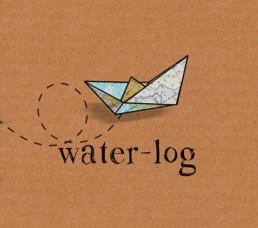In our years at sea we’ve sometimes had a break from the ocean swell or bouncy anchorages and chosen to sail on a river. Yes, it is unlikely that you will get an easy sail but even motoring upriver is a lovely adventure in itself. Plus, you’re generally sheltered from the worst effects of poor weather, have no swell to contend with and tune in to the cycle of tides.
Sometimes it can even prove to be a short cut, such as when we sailed up the Rivière Salée, which bisects the island of Guadeloupe. This narrow river is bordered by mangroves and is very shallow with two bridges that open only once a day before daybreak. The trip was beautiful and atmospheric: from the start in total darkness, using the buoys as our only guide; to spilling out into the eerie reef-world of the northern end in the dawn light, greeted by miles of still, turquoise water.
It’s also a great chance to explore the interior of a country. Normal coastal sailing means that you’re always more than a mile or so from shore and our interaction with the land from the boat is that we’re observing it all from a distance. The nice thing about river sailing, by contrast, is the immediacy of the local villages, wildlife and people that use the banks either side; close enough to wave, smile and even talk to as you journey along.
The Rio Guadiana is full of yachts at anchor all belonging to Europeans who meant to sail around the world but somehow forgot to go any further. We anchored in the middle, between the Portugese town of Alcoutim and the Spanish Sanlúcar. We arrived here after being bashed by weather on the coast so the quiet water and gentle trickling noises of the tide against the hull seemed a luxurious calm by comparison.
The Spanish church bells chime first, cheerfully announcing 9am. Two minutes later, the Portugese bells sound, insisting that it is only 8. Sanlúcar has one of those wonderful little shops selling fresh plum tomatoes, lighter fluid and fishing tackle. There are two small bars that are constantly closed and an artist’s studio, which doubles as the book exchange. Alcoutim has a lot more life with several little restaurants always full of people. We sat in one, listening to a group of men at the next table, who soon invited us to share in their food and wine. One Spaniard admitted that he preferred spending the evening on the Portugese side except for returning home earlier than his friends because of the time difference.
In El Salvador we encountered wild surf over a sand bar entering Bahia Jiquilisco to sail upriver where we stayed on a mooring for a month or so. The contrast of the serene and peaceful glide up the river with the crashing waves at the entrance made us feel as though we had been transported. To get to the moorings you sail for 10 miles, bending and winding with the river and saluting the friendly fishermen on rafts and huts along the way. The current is strong and, as you enter on the rising tide, the village life edging the river flashes by quickly and it takes no time before you’re hooking onto a ball. While our boat dawdled here we were able to explore inland, walk through jungle to a colony of spider monkeys and take our pick from the trees of beautifully fragrant ripe mangoes.
Whangarei, in New Zealand’s north island, was perhaps the hardest to tear ourselves away from. The town lies 12 miles up the Hatea river and boasts a sweet little marina which serves as a welcome tranquil stop for each year’s Pacific cruising fleet. Miles from the ocean rollers many sailors base themselves here for a season. It was here that we paused to await the birth of our second boat baby as the sheltered waters of a river make an ideal place to leave your boat if you’re planning on being away for any amount of time.
Who knows, maybe one day we’ll sail up the Amazon, but some things get under your skin and the coaxing call of the waves is like that for us. With a new crewmember to introduce to the salt spray and the bouncy swell we eventually had to retrace our wake and go back downstream. As my stomach churned, out of practice with the roll of the ocean, I glanced to my infant son, standing unassisted for the first time with the movement and giggling his head off. Yes, the sea beckons us home.

